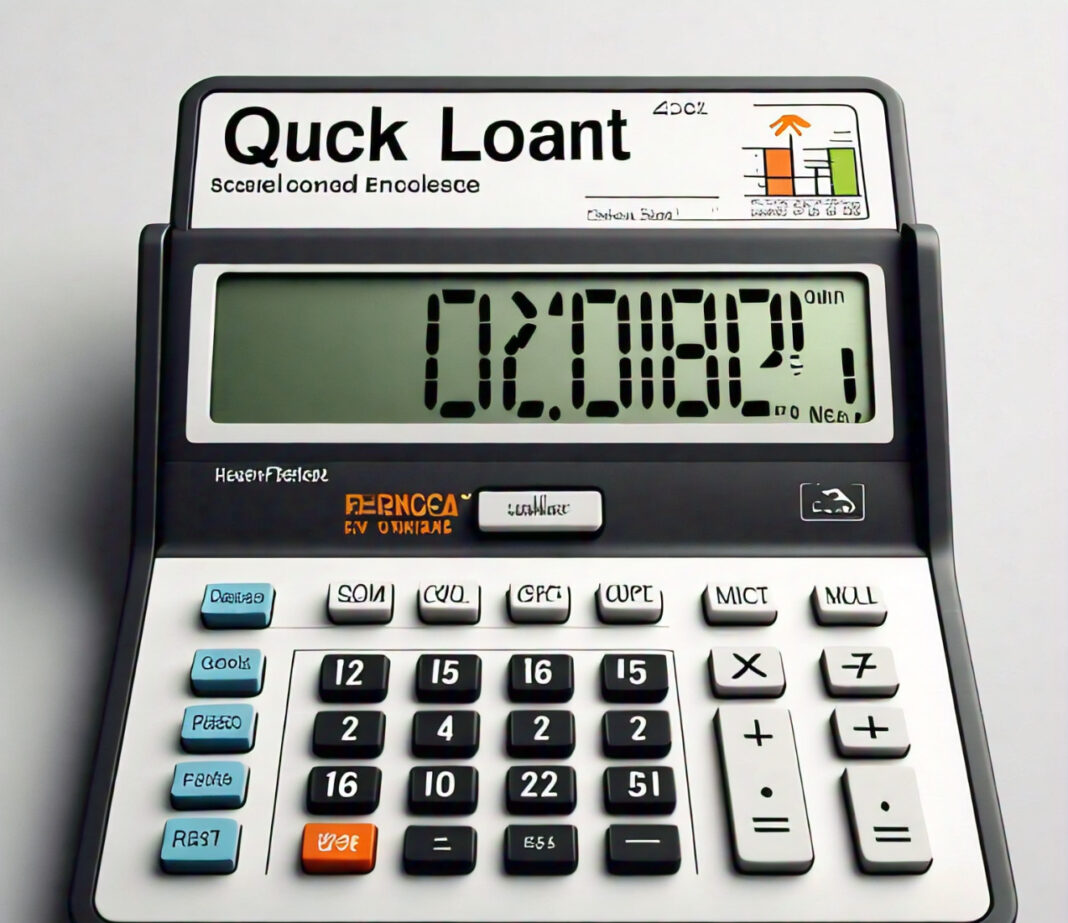Loans are crucial in the lives of all people and businesses today, especially while trying to meet their goals. Whether purchasing a home, starting a business, or covering expenses you never planned for, there is probably a loan product tailor-made for your situation. In this comprehensive guide, you will see what these featured loan products really are for, the benefit they offer, and what may come with them. By the end of this article, you’ll be better equipped to make responsible borrowing decisions and find the right loan that best fits your situation.

- Personal Loans: Versatile Finance for Diverse Purposes
Personal loans are among the most flexible loan products available in the market today. They may be used for just about anything, from debt consolidation to financing a wedding or home renovation.
Key Features:
- Unsecured loans-no collateral normally required
Fixed interest rates and repayment terms Loans are usually between $1,000 and $50,000. Repayment terms are usually between 1 and 7 years. Pros: Relatively fast approval and funding are provided. You don’t have restrictions on the usage of funds. If the case is managed responsibly, it can help improve credit scores. Cons: Quite often, it carries higher interest rates compared to security loans. Good to excellent credit is required for the best rates. Origination fees are charged by some lenders.
Personal loans are a no-fuss way of borrowing money for almost any need. They are especially handy when one needs a fixed amount and intends to repay it in foreseeable monthly installments.
- Mortgage Loans: Making Homeownership a Reality
For many, buying a home is the largest financial transaction one will ever make. Mortgage loans make this dream possible by providing long-term financing for real estate purchases.
Types of Mortgage Loans:
a) Conventional Mortgages
b) FHA Loans
c) VA Loans
d) USDA Loans
Key Features:
- Secured by the property being purchased
- Long repayment terms-usually 15 to 30 years
- Fixed or adjustable interest rates
- Down payment requirements vary by loan type
Pros:
- Interest rates are lower compared to many other loan types
- Possible tax benefits (see a tax professional)
- Build equity in a valuable asset
Considerations:
- Very strict qualification requirements
- High upfront costs (down payment, closing costs)
- Commitment involving many years of finance
Mortgages are required for most people to buy a home. These loans enable one to spread the cost of a home over several years and, therefore, make the purchase more affordable. It is important to understand the long-term commitment and if homeownership is affordable.
- Auto Loans: Financings Your Wheels
Whether it’s time to get a brand new or used vehicle, auto loans provide the necessary funding for many buyers.

Key Features:
- The vehicles being purchased secure them
Fixed rates and fixed monthly payments. Loan terms are usually granted in lengths between 24 and 84 months. Borrowed from banks, credit unions, or possibly through dealerships. Pros: Usually lower interest rates compared to unsecured loans. May often negotiate better cash prices for vehicles. May help with credit history. Cons: Longer terms could result in owing more on the car than it is worth. Insurance on financed cars may be higher. - Missed payments might result in repossession
Auto loans do enable people to drive a reliable vehicle without having one pay the entire price upfront. All the same, one must be very cognizant of the overall cost of the loan and avoid straining the wallet all too much in the form of monthly payments.
- Student Loans: Investment towards Education
Higher education could be pretty pricey for a lot of people, but then student loans have enabled a lot of individuals to go to college and university.
Types of Student Loans:
a) Federal Student Loans b) Private Student Loans
Key Features:
- Tailor-made for education expenses
- In most cases, the interest rates are lower compared to other types of loans
- Repayment is done after graduation.
- Federal loans have a number of repayment plans.
Advantages:
- Permit income-driven repayment options on federal loans
- Loan forgiveness is possible in some limited situations
- Can be used to establish a credit history
Considerations:
- Long-term debt that is nondischargeable in bankruptcy
- May accumulate interest while in school
Affects future borrowing capacity
Student loans are a key investment in your future. While they may create opportunities to secure higher-paying jobs, you must borrow responsibly and consider the long-term repercussions of student debt.
- Loans for Small Business: Powering Entrepreneurship
For the entrepreneurs and small business owners, there is a range of loan products to avail them of the necessary capital needed for startup, expansion, or maintenance.
Types of Small Business Loans:
a) SBA Loans
b) Term Loans
c) Business Lines of Credit
d) Equipment Financing
Key Features:
- Available for generalized business needs
- Can range from a few thousand to millions of dollars; terms vary from a few months to several years
- May be collateral-based or personally guaranteed
- Can offer fixed or variable interest rates
Advantages:
- Capital for growth and operation
- Possibly favorable tax treatment (see a tax professional)
- Establish a business credit history
Considerations:
- Many require solid, well-developed business plans and financial forecasts
- Lengthy process to get approved, sometimes taking months with SBA loans
- Personal credit can be approved for
Small business loans promote entrepreneurship and are a form of economic development. They allow innovating, expansion, and creating jobs; however, there should be a sane business plan and weighing of pros and cons before resorting to any kind of business loan.
- Home Equity Loans and HELOCs: Taping into Your Home’s Value
Home equity loans and home equity lines of credit (HELOCs) can tap into the equity owners have in their homes.
Key Features:
- Collateralized by the equity in your home
- A lump sum is provided with a home equity loan, and you have a line of revolving credit with a HELOC
- Compared with credit cards or personal loans, they generally have lower interest rates
- Loan sums are usually tied to the value of the home and the remaining balance on an existing mortgage
Advantages:
Funds can be used for just about anything.
Possible tax advantages to increasing your home’s value (see a tax advisor)
Security of higher borrowing amounts compared to unsecured loans
Things to Think About:
You could lose your home if you can’t pay the loan
May prolong the length of time before you have a clear title to your home
Fee and closing costs may be high
But Home equity products can be extremely useful financial tools, but only when used responsibly. They generally are employed to finance home improvements, consolidate debt, or cover large expenses. It is very important to remember that you are risking your home, and you should have a credible repayment strategy.
- Credit Builder Loans: Building or Rebuilding Credit
Credit builder loans are a product for such individuals who fall into either having limited credit history or a poor credit score, whereby a person can create or improve his credit score.
Key Features:
The loan amount is deposited into a savings account against which you make payments. Payments are reported to credit bureaus. Loan amounts are usually small, anywhere between $300 and $3,000. The loan terms are also short and usually range between 12 and 24 months. Pros: Establish or improve credit history. Savings enforced as you build credit. Less risk for lender; thus, sometimes easier to get approved. Things to Consider: You will not receive the loan amount directly. May have fees associated or require collateral.
- Interest charges apply, though they are usually low
Credit builder loans are innovative products in the market that help consumers either build their credit history or rebuild it in case they face financial problems. The loans are very useful for young adults, recent immigrants, or simply those who would want to improve their credit score rating.
- Debt Consolidation Loans: Simplifying Your Finances
For those juggling multiple debts, debt consolidation loans can help streamline payments and possibly save on interest.
Key Features:
It consolidates different loans into one.
It can be either secured or unsecured.
Fixed interest with a fixed repayment period.
The amount available varies based on debt from various sources and one’s credit rating.
Vantages
Simplification of finances through one monthly repayments
Potential to save on overall interest rate
Fixed payoff date
Things to Consider
It may increase the time taken to pay back your debt
Secured loans attach risk to assets
It is not solving the problem behind your spending
Debt consolidation loans are a powerful tool for dealing with multiple debts, especially high-interest credit card balances. Still, they are most effective when used in concert with a solid budget and financial plan so that you do not accumulate any new debt.
- Payday Alternative Loans (PALs): A Safer Short-Term Option
Payday Alternative Loans, provided through some credit unions, are a safer option for short-term, small-dollar borrowing needs.
Some key features:
Small loan amounts-usually up to $2,000
Short repayment terms: 1 to 12 months regulated by the National Credit Union Administration; less crippling fees and interest rates compared to payday loans
Pros:
Comparatively more affordable than payday loans
Do not trap you in a predatory lending cycle
Helps build a credit history
Considerations:
Only available to credit union members
Loan amounts may be limited
Still a relatively expensive form of borrowing
Because these loans are less likely to create a cycle of debt for borrowers than traditional payday loans, PALs offer a safer option. Although they should still be used with caution, PALs can provide a lifeline for those facing short-term financial emergencies.
Conclusion:
With all of the existing options in the world of loan products, it is understandable to feel overwhelmed. Understanding the world of loan products can be overwhelming, but truly understanding your choices is crucial in making smart financial decisions. From personal loans and mortgages to specialized products like credit builder loans and PALs, there’s likely a loan product designed to meet your specific needs.
Remember, taking out a loan is a grave responsibility; for any loan, you have to consider very thoroughly your financial situation: income, expenses, long-term goals. Always read the fine print, understand the terms and conditions, and don’t hesitate to ask questions or seek professional advice.
Loans can be effective tools that help you reach your goals, whether it is buying a house, starting your business, or improving your credit score, if you choose the right loan product and practice responsible borrowing. Loans can be stepping stones to a brighter financial future if there is careful planning.






